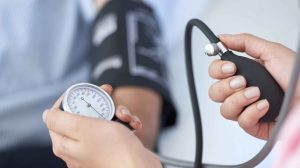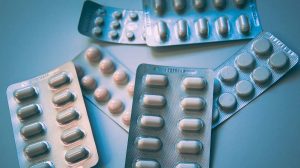After four decades its coffee which they filled their mouths with hot water, and following conflicting opinions regarding its contribution to health, the United States’ top nutrition committee did the right thing, and published recommendations on coffee consumption. Are you drinking too little or should you calm down?
According to the Senior Committee on Nutrition, drinking up to five cups of coffee (or up to 400 milligrams of caffeine) a day has several benefits
In a global survey conducted in 2022, 3.1 cups of coffee are consumed daily by the average American coffee user.
The recommendation is that children and adolescents should completely avoid or consume a limited amount of drinks or products that are rich in caffeine
For 40 years of its existence, the most senior committee on nutrition matters in the USA (“the Advisory Committee for Dietary Guidelines”) refrained from referring to coffee – for better or for worse. to the possible dangers associated with its consumption – caused the committee to issue a clear recommendation: drink as much coffee as possible! (up to a certain limit)
In an official document published by the committee, which is made up of senior nutritionists, it is stated that consumption of 3-5 cups of coffee per day is considered “normal”, and that there is clear evidence that consumption of such an amount “is not associated with long-term health risks among healthy people”.
In fact, the panel claims, there is consistent evidence that drinking up to 5 cups (or up to 400 milligrams of caffeine) a day has several health benefits, including a reduced risk of cardiovascular disease, type 2 diabetes and Parkinson’s disease . “It is not certain that such an amount will make you healthier or stronger,” the document says, “but it probably won’t do any harm either. The health risks are minimal.”
Tom Brena, a nutritionist at Cornell University and a member of the committee, added: “I don’t want to imply that coffee cures cancer – no one thinks so. But there is no evidence that it causes an increased risk of disease, if the opposite is true.”

What do you add to coffee?
Wait a minute, before you run to the nearest coffee shop and start drinking unconsciously, the committee wants to make it clear that they mean coffee as coffee, and when you add calories to it – from whipped cream, milk, or sugar – you are not doing your body any good. “It is important to be careful and minimize the amount of calories and sugars that come from added sugar and high-fat dairy products or milk substitutes, which are usually added to coffee,” it says.
Although it sometimes seems that all Israelis drink coffee, in a global survey conducted in 2014, Israel was ranked 35th in daily coffee consumption per person with 0.409 cups per day. The Netherlands, which ranked first, was the only country where the average daily consumption was more than 2 glasses a day.
“We discovered that coffee has many health benefits, especially when drinking more than two cups a day,” said Professor Miriam Nelson, another member of the committee.
Coffee for children, is it good ?
The committee warned against increased consumption of caffeine (more than 400 milligrams per day for adults and an undetermined level for children and adolescents) in combination with large energy drinks .
Information on the subject is still limited, they said, but it “suggests negative health effects, such as caffeine poisoning and cardiovascular events.”
The experts added that the concern is greater when caffeine is consumed together with alcoholic beverages, and clarified that it is forbidden to consume, mix together or even drink nearby, energy drinks with high levels of caffeine together with alcoholic beverages . In general, the recommendation is that children and adolescents should completely avoid or consume a limited amount of drinks or products high in caffeine.
Also, in certain situations or due to medical problems, it is important to limit the level of daily caffeine consumption. Pregnant women, for example, are not recommended to consume more than two cups of coffee a day.
Now it remains to be seen whether the relevant government agencies in the US, the health department for example, will adopt the committee’s recommendations and include them in the update of the official nutrition recommendations, which should be published during 2015. In the US, they estimate that the answer is positive, since it is rare for government agencies to ignore the committee’s recommendations the consultant












Add Comment